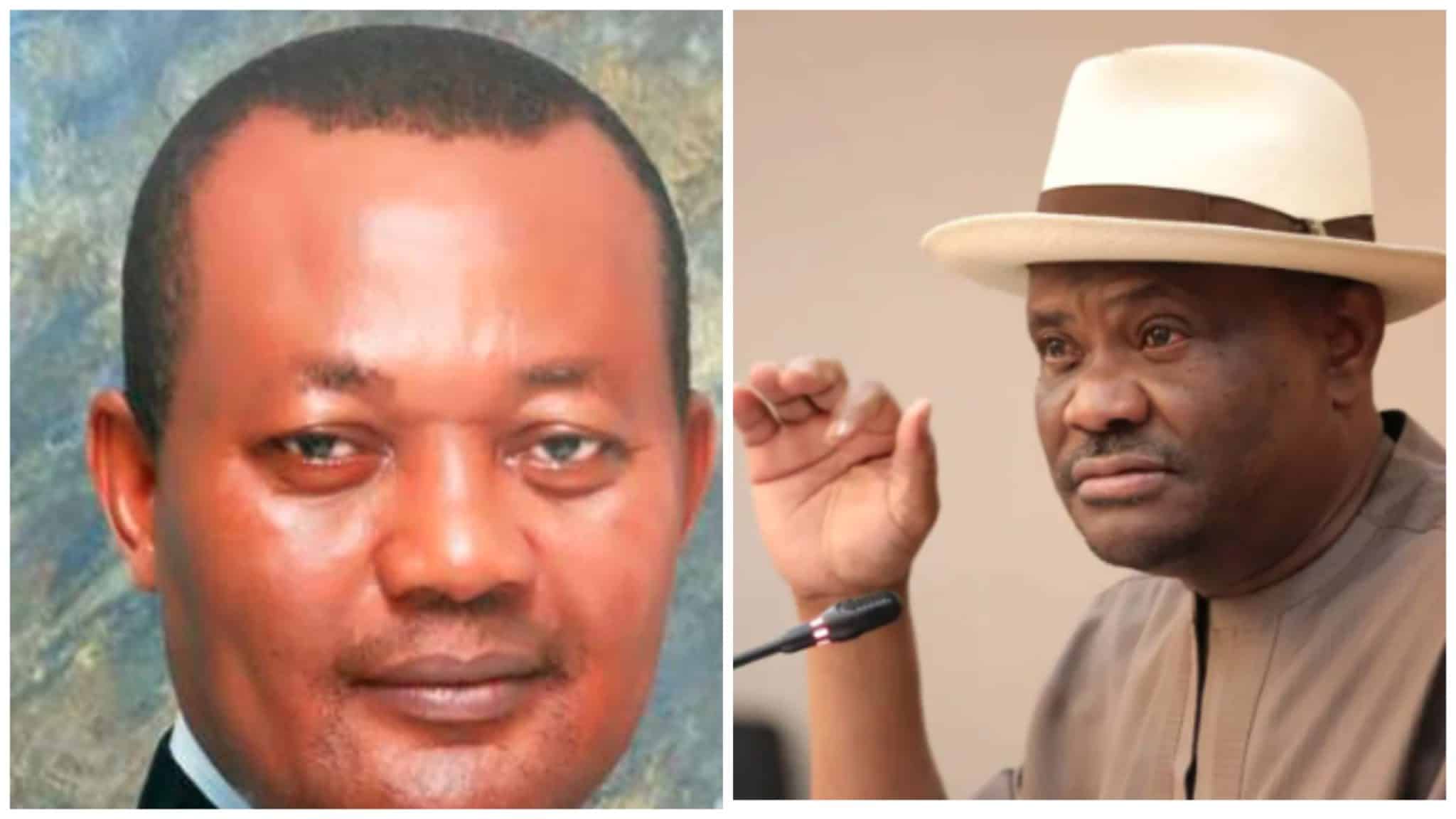Tan Chuanjin's Divorce: A Scandal? What It Means For Singapore
In the unforgiving arena of public life, where image is often paramount, can a politician's personal crisis truly remain separate from their professional duties? The recent divorce of Singaporean political heavyweight Tan Chuan-Jin thrusts this very question into the spotlight, revealing the intricate dance between private turmoil and public perception. This isn't merely a tale of a marriage dissolving; it's a study in the pressures faced by those who lead, the expectations society places upon them, and the potential fallout when the personal and political collide. The ramifications extend far beyond the domestic sphere, touching upon the very fabric of Singaporean politics and sparking a national conversation about leadership, morality, and the right to privacy.
Let's be frank: divorce, while increasingly common, remains a deeply personal and often painful experience. For the average citizen, navigating the complexities of separation is challenging enough. But when one party is a high-profile figure like Tan Chuan-Jin, the stakes are exponentially raised. Suddenly, intimate details become fodder for public consumption, scrutinized in boardrooms, dissected over dinner tables, and amplified across social media platforms. The private grief transforms into a very public spectacle, and it is imperative we understand the nuances of this transformation.
| Category | Details |
|---|---|
| Full Name | Tan Chuan-Jin |
| Date of Birth | January 10, 1969 |
| Place of Birth | Singapore |
| Spouse | Raymond Lim |
| Relationship | Divorced (2023) |
| Children | Two |
| Education | Victoria Junior College, National University of Singapore (BSc), University of Cambridge (MPhil) |
| Military Service | Singapore Armed Forces (Brigadier-General) |
| Political Party | People's Action Party (PAP) |
| Constituency | Marine Parade Group Representation Constituency (GRC) |
| Positions Held |
|
| Awards & Honours |
|
| Website | Parliament of Singapore Profile |
The purpose here is to dissect the Tan Chuan-Jin situation with as much clarity and depth as possible. To understand not only the "what" of the divorce, but also the "why" and the "how" it potentially reshapes his political trajectory. For the uninitiated, Tan Chuan-Jin is not just another politician; he is a figure who has held significant positions within the Singaporean government, including Speaker of Parliament, Minister for Social and Family Development, and Minister for Manpower. His career has been marked by a blend of military service, political acumen, and a perceived commitment to public service. This public image is now undeniably intertwined with the narrative of his divorce.
- Unleashing The Fury Filmyzilla Godzilla Minus One Ndash The Ultimate Movie Experience
- Filmyzilla Kota Factory Season 3 The Ultimate Guide To Bingewatching
Born on January 10, 1969, Tan Chuan-Jin's path to political prominence began with a distinguished career in the Singapore Armed Forces, where he rose to the rank of Brigadier-General. His military background instilled in him a sense of discipline, leadership, and strategic thinking, qualities that would later prove invaluable in the political arena. He entered politics in 2011, successfully contesting the Marine Parade Group Representation Constituency (GRC) under the banner of the People's Action Party (PAP), the dominant political force in Singaporean history. His ascent was rapid, marked by a series of ministerial appointments that underscored his growing influence and the trust placed in him by the party leadership. He served as Minister of State for National Development and Manpower before taking on full ministerial roles in Manpower and later Social and Family Development. In 2017, he reached a new pinnacle, being appointed Speaker of Parliament, a position of considerable authority and prestige.
But it is not only the high points that define a career. Like many politicians, Tan Chuan-Jin has faced his share of criticism and controversy throughout his tenure. However, his personal life remained largely shielded from public scrutiny, until the news of his divorce broke. It shattered a carefully constructed image and opened a Pandora's Box of questions about his suitability for high office. The divorce was finalized in 2023, with "irreconcilable differences" cited as the reason for the split. While the details of the settlement remain confidential, it is understood that the division of assets and child custody arrangements were handled amicably, albeit under intense media attention. The emotional toll on both parties, however, is undeniable, as is the ripple effect on their respective families and social circles.
The immediate aftermath of the announcement saw a surge in public commentary, ranging from expressions of sympathy to outright condemnation. Social media platforms became battlegrounds for competing narratives, with some users lamenting the intrusion of personal matters into the political sphere, while others argued that a politician's private life is inextricably linked to their public persona. Hashtags like #TanChuanjinDivorce and #SingaporePolitics trended for days, amplifying the debate and ensuring that the story remained firmly in the public consciousness. The comments themselves were a mixed bag, reflecting the diverse perspectives within Singaporean society. Some expressed compassion for Tan Chuan-Jin and his family, acknowledging the pain and disruption caused by divorce. Others questioned his judgment and integrity, suggesting that the breakdown of his marriage reflected poorly on his ability to lead. A third group took a more pragmatic approach, arguing that the divorce was a personal matter and should not affect his political career, provided he continued to perform his duties effectively.
- Filmyzillamobi The Ultimate Guide To Your Movie Streaming Needs
- Filmyzilla Mirzapur S1 The Ultimate Guide To Downloading And Streaming Season 1
One particularly vocal segment of the public focused on the perceived hypocrisy of a politician who had previously championed family values now experiencing a marital breakdown. This criticism was particularly sharp, given Tan Chuan-Jin's past role as Minister for Social and Family Development, a portfolio that involved promoting strong families and supporting vulnerable individuals. The argument was that his personal struggles undermined his credibility to advocate for these values, creating a dissonance that resonated with many Singaporeans. The media, both local and international, seized upon the story, providing extensive coverage and analysis. News outlets ran profiles of Tan Chuan-Jin, revisiting his career highlights and examining the potential impact of the divorce on his political future. Opinion pieces explored the broader implications of the case, raising questions about the standards of conduct expected of political leaders and the role of personal morality in public life. Some media outlets adopted a neutral tone, focusing on the facts of the case and providing context for readers. Others were more critical, highlighting the potential damage to Tan Chuan-Jin's reputation and questioning his suitability for future leadership roles.
The political repercussions are multifaceted. On the one hand, the divorce could lead to a loss of support from conservative voters who place a high value on traditional family structures. These voters may feel alienated by Tan Chuan-Jin's personal circumstances, questioning his commitment to the values they hold dear. On the other hand, the divorce could also humanize him in the eyes of some voters, portraying him as a relatable figure who has faced personal challenges and overcome adversity. This could potentially broaden his appeal, particularly among younger voters who are more accepting of diverse family structures and less judgmental of personal matters. The impact on his standing within the People's Action Party (PAP) is also uncertain. While the party has traditionally emphasized stability and discipline, it has also shown a willingness to adapt to changing social norms. It is possible that the PAP leadership will view the divorce as a personal matter that does not affect Tan Chuan-Jin's ability to serve the party and the country. However, it is also possible that they will see it as a liability, potentially hindering his chances of future advancement.
Looking ahead, Tan Chuan-Jin faces a number of possible scenarios. One possibility is that he will successfully navigate the fallout from the divorce and continue his political career with renewed vigor. This would require him to demonstrate resilience, maintain his commitment to public service, and regain the trust of voters who may have been alienated by his personal circumstances. Another possibility is that he will step back from politics to focus on his personal life and rebuild his family. This would be a difficult decision, but it could allow him to prioritize his well-being and the needs of his children. A third possibility is that he will remain in politics but in a diminished role, perhaps taking on less demanding responsibilities or focusing on specific policy areas. This would allow him to continue contributing to the country while mitigating the potential damage to his reputation. The outcome will depend on a number of factors, including Tan Chuan-Jin's own actions, the reactions of the PAP leadership, and the evolving attitudes of the Singaporean public.
From this episode, there are valuable lessons to be gleaned. This is not just about Tan Chuan-Jin; it's about the broader challenges faced by public figures in an era of unprecedented scrutiny. One key takeaway is the importance of transparency and authenticity. In an age where information spreads rapidly and rumors can quickly spiral out of control, it is crucial for leaders to be open and honest about their personal lives, while respecting the boundaries of privacy. Another lesson is the need for resilience and adaptability. Politicians inevitably face personal challenges and setbacks, and their ability to bounce back from adversity is a key indicator of their leadership potential. Finally, the case highlights the evolving nature of public expectations. As societies become more diverse and tolerant, the standards of conduct expected of political leaders are also changing. While integrity and ethical behavior remain paramount, there is a growing recognition that personal lives are complex and that individuals should not be judged solely on the basis of their marital status or family arrangements.
To gain a deeper understanding of the situation, expert opinions provide valuable context. Political analysts emphasize the importance of how Tan Chuan-Jin manages the narrative surrounding his divorce. His ability to address the concerns of voters, demonstrate continued commitment to public service, and maintain his integrity will be crucial in determining his future prospects. Psychologists highlight the emotional toll of divorce, particularly on individuals in high-pressure positions. They emphasize the importance of seeking support, managing stress, and prioritizing mental well-being in order to navigate this challenging period effectively. Legal experts point out the complexities of divorce settlements, particularly when significant assets and child custody arrangements are involved. They emphasize the need for clear communication, fair negotiation, and a focus on the best interests of the children.
Ultimately, the Tan Chuan-Jin divorce serves as a stark reminder of the human dimension of politics. Behind the carefully crafted images and the polished speeches, politicians are individuals with personal lives, facing the same challenges and vulnerabilities as everyone else. It is important to approach these situations with empathy and understanding, while also holding leaders accountable for their actions and ensuring that they uphold the highest standards of conduct. The story is far from over, and the coming months will be crucial in determining the future trajectory of Tan Chuan-Jin's career and the broader implications for Singaporean politics. It is a story that demands careful attention and a nuanced understanding of the complex interplay between personal life and public duty.
- Unleashing The World Of Filmyzilla South Movie Your Ultimate Guide
- Filmyzilla Hollywood Hindi Your Ultimate Guide To Bollywoods Global Sensation

Joe Biden’s CNN Debate Moment that Ended His Political Career Armory

Tan ChuanJin’s Twitter r/singapore

'Wike Abandoned Me Despite The Role Played In His Political Career' Mbu